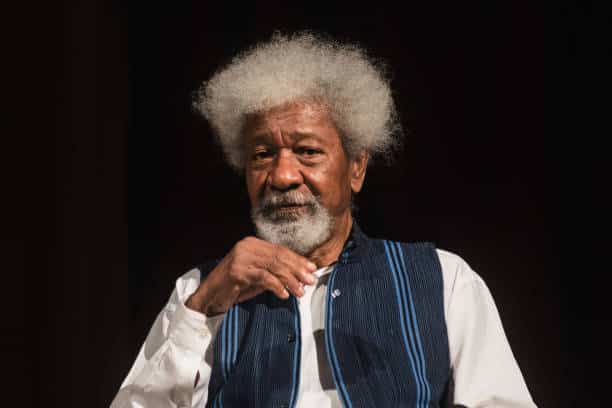
Wole Soyinka is one of Africa’s most influential writers. He is a Nobel laureate in Literature, renowned for his impactful contributions to Nigerian and global literature. His works explore complex themes such as politics, colonialism, mythology, and social justice. In this article, we will explore Wole Soyinka book, examining his masterpieces, major themes, and lasting impact on the literary world.
An Overview of Wole Soyinka’s Literary Career
Wole Soyinka was born in 1934 in Nigeria. He studied at the University of Ibadan and later at the University of Leeds. His education exposed him to both African traditions and Western literary forms. Soyinka’s works combine these influences, making his writing unique.
He is known for his plays, poetry, and prose. His rise to fame began with A Dance of the Forests, a play that gained him international recognition. Soyinka’s works often challenge political oppression and societal issues. His influence is felt not only in Nigerian literature but also globally, positioning him as one of the leading African writers and a significant Nobel laureate in literature.
Top Wole Soyinka Book
Wole Soyinka has written many remarkable books. Here are some of his most significant works:
A Dance of the Forests
This early play is a critique of Nigerian society. A Dance of the Forests examines the tension between tradition and modernity. It urges the nation to look beyond its past and move toward progress.
The Man Died: Prison Notes of Wole Soyinka
In this autobiographical work, Soyinka reflects on his time in prison. The Man Died explores the mental and physical toll of political imprisonment. It also touches on Nigeria’s political struggles during the civil war. This book offers a powerful view of Soyinka’s personal resilience.
Death and the King’s Horseman
This is one of Soyinka’s most celebrated plays. Based on a true story, Death and the King’s Horseman explores the conflict between British colonial authorities and Nigerian traditions. The play examines duty, honor, and the consequences of colonialism on African culture.
The Burden of Memory, The Muse of Forgiveness
In this collection of essays, Soyinka reflects on themes of memory and forgiveness. He examines the need for healing after political violence. The Burden of Memory, The Muse of Forgiveness critiques Nigeria’s political landscape and emphasizes the importance of facing the past.
Thematic Exploration in Wole Soyinka’s Works
Soyinka’s books are rich in recurring themes. These themes help shape his unique perspective on African society and global issues.
Politics and Power
Many of Soyinka’s works focus on political oppression. He often critiques authoritarian regimes and their impact on individuals. In books like The Man Died and Death and the King’s Horseman, Soyinka highlights the destructive effects of political power and corruption.
Colonialism
Soyinka addresses the lasting effects of colonialism. His works critique the disruption caused by colonial powers. A Dance of the Forests explores the tension between African traditions and colonial influence, challenging readers to reconsider the colonial legacy.
Myth and Cultural Identity
Myth plays a key role in Soyinka’s writing. He blends African myths with modern literary techniques. This combination helps readers understand the clash between tradition and modernity. Wole Soyinka book like Death and the King’s Horseman use myth to explore cultural identity and social order.
Wole Soyinka’s Influence on Nigerian and Global Literature
Wole Soyinka’s influence extends beyond Nigeria. His works have shaped the course of post-colonial literature and inspired writers across the globe. Soyinka’s powerful critiques of colonialism and political power continue to resonate with contemporary authors.
His impact on Nigerian literature is especially significant. Writers like Chimamanda Ngozi Adichie and Chinua Achebe have been influenced by Soyinka’s work. They explore similar themes of identity, politics, and societal change. Soyinka’s global influence has cemented his place as one of Africa’s literary giants.
Wole Soyinka and Contemporary Nigerian Literature
Wole Soyinka’s influence is felt in modern Nigerian literature. Writers such as Chimamanda Ngozi Adichie and Chinua Achebe have drawn inspiration from his work. Soyinka’s exploration of Nigeria’s political landscape and cultural identity has influenced many contemporary authors.
- Half of a Yellow Sun by Chimamanda Ngozi Adichie: “Like Soyinka, Adichie captures Nigeria’s tumultuous history.”
- No Longer at Ease by Chinua Achebe: “Achebe’s novel examines Nigerian societal issues, similar to Soyinka’s works.”
These modern writers continue to build on Soyinka’s legacy, reflecting on Nigeria’s history and culture.
Wole Soyinka’s Writing Style and Legacy
Soyinka’s writing is distinctive for its blend of African storytelling and Western literary techniques. His use of symbolism and rich language is notable. Soyinka often writes complex, multi-layered characters and themes.
His legacy is immense. Wole Soyinka book continue to shape African literature and inspire new generations of writers. His influence extends far beyond Nigeria, impacting both African and global literary traditions. Through his unique style, Soyinka has become one of Africa’s greatest literary figures.
Conclusion
Wole Soyinka’s lasting impact on literature is undeniable. His exploration of themes like colonialism, politics, and cultural identity has made his books timeless. Soyinka’s works offer valuable insights into African history, culture, and the human experience.
Explore Wole Soyinka books today to gain a deeper understanding of one of Africa’s greatest literary minds. For further exploration, check out works by Chimamanda Ngozi Adichie, Chinua Achebe, and other notable African authors.

Leave a Reply
You must be logged in to post a comment.